
Destinations around the world are working hard to attract digital nomads. We list the countries and territories offering remote work visas
It’s no secret that the number of remote workers globally is soaring. While travelling the world as a digital nomad can undoubtedly be complicated, a growing number of countries has introduced initiatives and remote work visas to smooth the way for flexible employees.
As such, we’ve put together a quick-look guide on the territories and countries offering remote work visas or similar digital nomad schemes. Bear in mind that every destination’s rules vary so it is essential to do your research.
Countries offering remote work visas
These territories and countries are either currently offering remote work visas (or an equivalent) or planning to introduce a scheme soon.
1. Antigua & Barbuda
Known for its glorious beaches and aquamarine water, Antigua & Barbuda is offering a long-stay visa program called the 'Nomad Digital Residence'. The scheme is designed for anyone who can work remotely. Those eligible will be granted a 'special-resident' authorisation that will initially be valid for up to 24 months.

Essentials: Applicants must show evidence of employment, including self-employment; be paying income tax in their current place of residence or native country; and pay a visa fee of $1,500 for an individual, $2,000 for a couple or $3,000 for a family of three or more.
More information: antigua-barbuda.com
2. Anguilla
In 2020, the British Overseas Territory of Anguilla launched the rather wordy but enticing 'Lose The Crowd Find Yourself. Work. Life. Bliss.' scheme. The program allows digital nomads including individuals, families and students to live in Anguilla for three to 12 months.
Essentials: For stays of 91 days to 12 months. Applicants must complete an application form; provide proof of employment or business incorporation certificate; and pay a fee of $2,000 for individuals and students, or $3,000 for a family of four (plus $250 for each additional dependent).
More information: escape.ivisitanguilla.com
3. Aruba
Aruba recently launched its 'One Happy Workation' scheme which sounds more like a holiday package than work. The program offers stays of up to 90 days and incentives such as complimentary wifi, breakfast, all-inclusive food and beverage options as well as access to special local experiences. What's more, working is not even mandatory for the duration of the stay.
The catch? It's currently only available to US nationals.
Essentials: US nationals only; seven to 90 days. Applicants must show proof of employment by a company or self-employment in your home country.
More information: aruba.com
4. Barbados
In 2020, Barbados launched the 'Barbados Welcome Stamp', a special 12-month visa for remote workers employed by a company registered and operating outside of the country.
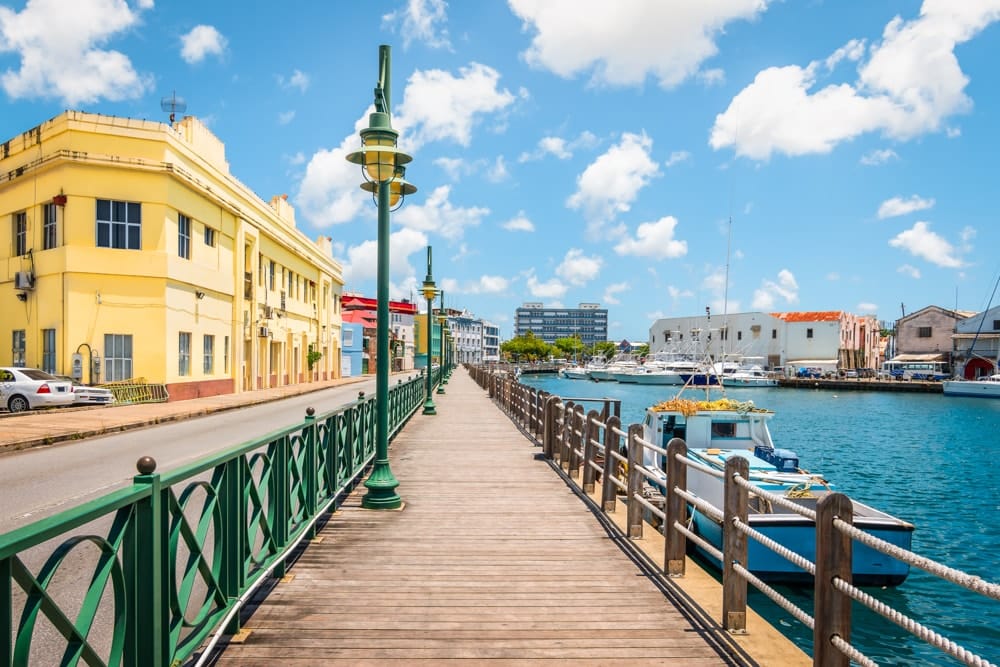
Essentials: Applicants must make an annual income of at least $50,000 over the 12 months they intend to stay, and pay a fee of $2,000 for individuals or $3,000 for a family within 28 days of application approval.
More information: visitbarbados.org
5. Bermuda
The British Overseas Territory of Bermuda has also launched a residency initiative called the 'Work from Bermuda Certificate'. The certificate permits executives and students to work and study remotely from the island nation for up 12 months. The scheme includes a number of perks including discounts on accommodation, car rentals and broadband as well as access to remote workspaces.
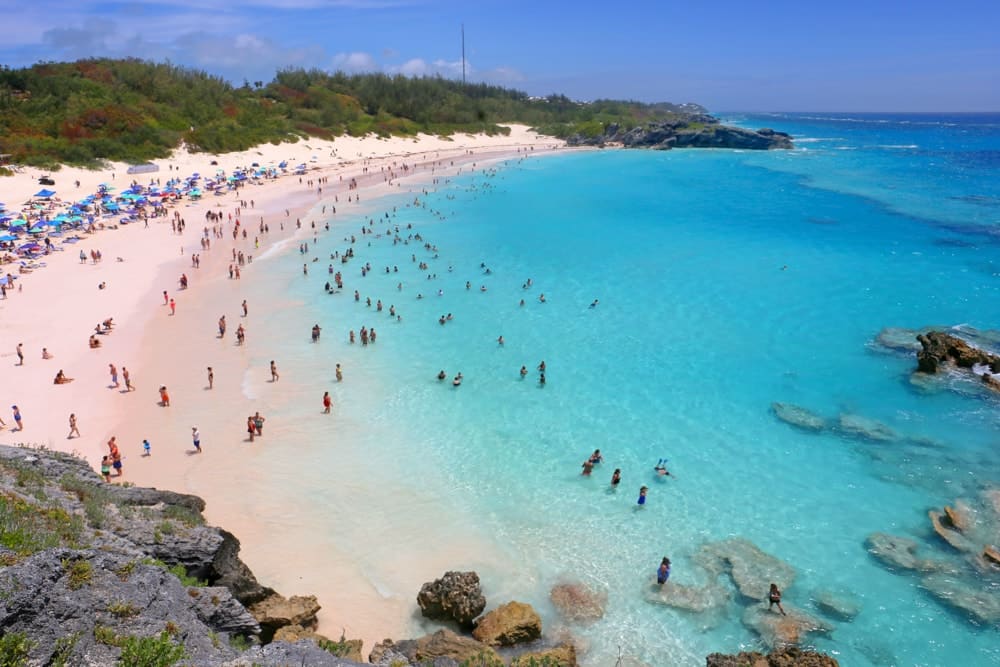
Essentials: Applicants must demonstrate employment with a legitimate company or their own company as long as it's registered and operating outside of Bermuda. Applicants cannot have any criminal convictions; must hold valid health insurance; have substantial means and/or have a continuous source of annual income; and pay a fee of $263.
More information: gotobermuda.com
6. Brazil
Brazil is the only South-American country so far to launch a digital nomad visa. The scheme allows remote workers to stay in the country for up to 12 months as long as the applicant works for a non-Brazilian employer.

Essentials: Applicants must provide proof of a monthly income of $1,500 over the last three months or proof of $18,000 in funds, submit to a police check and have valid health insurance. Within 30 days of entry to Brazil, visa holders must register at the Federal Police, submit a copy of their visa application, and pay a fee (fees vary depending on origin).
More information: cglondres.itamaraty.gov.br
7. Cayman Islands
The self-governing British Overseas Territory of the Cayman Islands has introduced the 'Global Citizen Concierge Program' permitting remote workers to stay for up to 24 months. Clearly targeting a certain calibre of nomad, the Caymans are insisting applicants have an annual salary of at least $100,000 for individuals or $150,000 for couples.
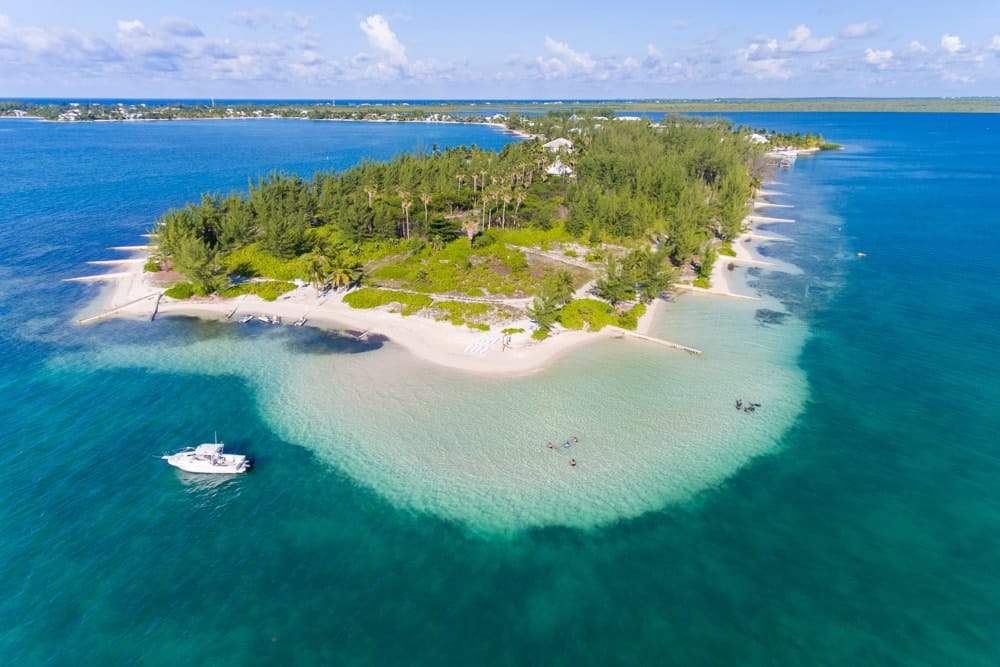
Essentials: Applicants must be employed outside of the Cayman Islands; provide proof of an annual salary of at least $100,000 for individuals or $150,000 for couples; and provide a notarised bank reference, statement of police clearance and proof of valid health insurance.
More information: visitcaymanislands.com
8. Costa Rica
Costa Rica, which has long been popular with expats, particularly US retirees, already has a freelancer visa called the 'Rentista'. This allows foreigners to stay for up to two years.

However, Costa Rica recently passed a law to grant visas to digital nomads. The visa will allow foreign nationals and their families to live and work there for at least 12 months with the possibility to extend for an additional year. The visa will exempt holders from paying local income taxes and permit them to open a bank account in Costa Rica. Holders will also be allowed to drive using their own country's driving license.
Applications are yet to open, but further details are expected to be announced soon.
Essentials: Applicants must provide proof of income over $3,000 per month or $5,000 per month if travelling with a spouse or family; have medical insurance for the duration of their stay in Costa Rica; and make a one-time (TBA) payment for the visa to be issued.
More information: TBA; information on the Rentista visa can be found at migracion.go.cr.
9. Croatia
Croatia, known for its glittering Mediterranean coast, bevvy of rocky islands and historic old towns of Dubrovnik, Split and Hvar, recently expanded its short-term residency permits to welcome travellers from outside the European Union.

Essentials: Applicants must be employed remotely by a company that isn't registered in Croatia and doesn't perform work or provide services to employers there. Temporary stays are initially granted for up to a year and then close family members may join. Applicants cannot have any criminal convictions and must hold valid health insurance and a contract of employment. Applicants must also provide proof of means of subsistence during their stay and demonstrate they have a minimum of €3,802 ($4,000) available for 12 months.
More information: mup.gov.hr
10. Czech Republic
The central European country of the Czech Republic has a freelancer visa called the 'Zivno', although it has been described as notoriously complicated to navigate. Several nomads have suggested it's easier to hire a specialist to guide you through the process.

Essentials: Applicants must have a trade license in one of several specified fields; provide proof of accommodation for at least 12 months; pay a local tax of around $80 per month; pay a visa fee of $100; and have proof of funds of around $6,000.
More information: rzp.cz
11. Dominica
The Caribbean island of Dominica is offering remote work visas in the form of its 'Work in Nature' initiative. The visa entitles workers to relocate there for up to 18 months. Known as the ‘the nature island,' Dominica is popular with eco and adventure travellers. It is also home to the Caribbean's first long-distance hiking trail, the Waitukubuli National Trail.
Families as well as individuals can apply for the visa, with a family bundle program available that enables children to attend school in Dominica.
Essentials: Applicants must be 18 or older; expect to earn $50,000 or more over the subsequent 12 months or have a means of supporting themselves; pay an application fee of $100 and a visa fee of $800 for individuals and $1,200 for families.
More information: windominica.gov.dm
12. Dubai, UAE
The Emirate of Dubai, already a popular expat destination, has launched a virtual working program that's valid for up to 12 months. To sweeten the deal for digital nomads, the scheme provides access to resident-comparable services such as telecoms, utilities and schooling.

Essentials: Applicants must earn at least $5,000 a month; provide proof of employment from a current employer with a one-year contract or proof of company ownership; have valid health insurance; and pay a fee of $611.
More information: visitdubai.com
13. Estonia
In 2020, Estonia launched a new visa scheme for digital nomads permitting remote workers to live in Estonia and legally work for their employer or their own company (as long as it's registered abroad).

Essentials: Applicants must already have employment with a non-Estonian company, conduct business through their own non-Estonian registered company abroad or work as a freelancer for mainly registered clients; and demonstrate an income of at least $4,200 for the six months preceding their application.
More information: e-resident.gov.ee
14. Georgia
During the pandemic, Georgia launched its 'Remotely from Georgia' scheme, created for freelancers, full-time employees or business owners planning to live and work in Georgia for 12 months without a visa. The initiative is also open to workers' families.

There have been reports that the 'Remotely from Georgia' initiative is being phased out although the fundamentals of the scheme will remain in place with citizens from at least 95 countries allowed to stay and work remotely from Georgia for up to a year.
Essentials: Open to residents of 95 countries. Applicants must demonstrate they have the capacity to pay taxes while in Georgia; have a minimum monthly salary of $2,000; hold valid health insurance for their stay; and pay for a two-week quarantine upon arrival.
More information: georgia.travel / migration.commission.ge
15. Germany
Germany has a freelance visa, 'Aufenthaltserlaubnis für Selbständige Tätigkeit' (residence permit for self-employment). The scheme is designed to enable foreign freelancers and self-employees to live and work in Germany for between six months and three years.

Essentials: Applicants must provide proof of financial self-sustainability, valid health insurance and Germany-based clients. They must also pay a fee of $110. It can take up to four months to get approved.
More information: make-it-in-germany.com
16. Greece
Greece was already a popular digital nomad destination for EU residents, but in 2021, it announced there would be a number of steps put in place to encourage non-EU foreign workers to move to the country after years of austerity has led to a 'brain drain' in the country since the Greek debt crisis of 2011. Incentives include a series of tax breaks.

Essentials: Applicants must be EU travel residents and self-employed, freelancers or employees of a company based outside Greece. Applicants may apply for a Long Term Visa (National Visa) for up to 12 months. Applicants must provide evidence they have a minimum monthly income of €3,500 and pay a €75 fee.
More information: www.mfa.gr
17. Hungary
The Central-European country of Hungary has launched a new digital nomad visa called the 'White Card' (commonly known as the DNV). The White Card is only open to non-EU nationals and permits its holders to live and work in Hungary legally for up to 12 months.

Essentials: For non-EU nationals only; valid for up 12 months with the option to extend. Applicants must demonstrate they have employment with a non-Hungarian organisation or own shares in a non-Hungarian company; demonstrate financial self-sustainability; and provide evidence of an income of around $2,100 per month.
More information: bmbah.hu
18. Iceland
Wild and windswept Iceland has long wooed nature lovers and has now introduced a long-term visa intended to entice remote workers and their family members for up to six months. Known as the 'Work in Iceland' program, the scheme requires workers to be earning a considerable monthly wage of at least ISK 1,000,000 ($7,626).

Essentials: Applicants must hail from a country outside the EU and not need a visa to travel to Iceland. They must intend to work remotely from Iceland; not intend to live in Iceland long term; and be able to demonstrate a monthly income of $7,626 for an individual or $9,900 for a spouse or partner. They must also hold valid health insurance.
More information: work.iceland.is
19. Indonesia
Indonesia's tourism ministry recently announced plans for a visa that would allow remote workers to live there tax-free for up to five years. At this stage, little is known about the new scheme. However, Indonesia’s tourism minister, Sandiaga Uno, told the South China Morning Post, “In the past, the ‘three Ss were sun, sea and sand. We’re moving it to serenity, spirituality and sustainability. This way we’re getting better quality and better impact on the local economy.”

Essentials: Applicants won't pay taxes if their income is not earned in Indonesia; potential stays of up to five years.
More information: TBA
20. Italy
Italy is planning to launch a new digital nomad visa to encourage foreigners to spend a year working there remotely. Although still in its development stages, the visa is aimed at 'highly qualified' remote workers and freelancers who work outside the EU, including US and UK nationals.

Essentials: For non-EU nationals only; applicants can stay up to 12 months.
More information: TBA
21. Malta
In 2021, Malta extended its nomad residence permit to allow remote workers from around the world to stay in the country for up to a year. As an EU member state, Malta already welcomed digital nomads from the EU but expanded the existing program to permit applicants from non-EU countries, including individuals from the US and UK among others. Unsurprisingly, Malta was recently ranked as one of the best countries for remote workers.

Essentials: Applicants must work for a non-Maltese employer; offer freelance or consulting services, mostly to non-Maltese clients; demonstrate they earn around $2,900 a month; pay a fee of $320 each, plus the same for each dependant; and have valid health insurance for the entirety of the stay.
More information: nomad.residencymalta.gov.mt
22. Mauritius
In 2020, Mauritius, the remote Indian Ocean island located over 1,000km off the coast of Madagascar, established a renewable premium travel visa. The scheme entitles eligible visitors to the tropical island to stay on for up to 12 months. They must come as a tourist, a retiree, a parent of children studying in Mauritius or a professional remote worker.

Essentials: Applicants must demonstrate proof of long-stay plans; have sufficient health insurance for the entirety of their stay; must not enter the Mauritian workforce while there; and ensure their main place of business and source of income is non-Mauritian.
More information: edbmauritius.org
23. Mexico
Mexico is offering a 'Temporary Resident Visa' to anyone who works remotely for a location-independent business or owns a non-Mexican company. The visa lasts for 12 months, with an option to extend for a further three years.
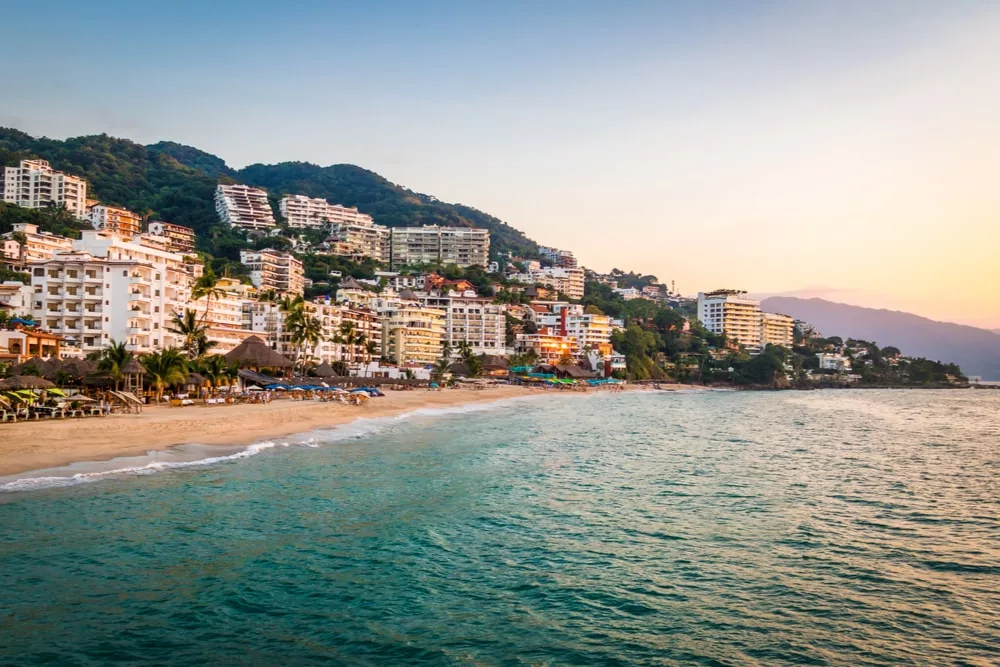
Essentials: Applicants must demonstrate an income of at least $1,620 per month or a bank account balance of $27,000, and work remotely for a non-Mexican company or own a location-independent business.
More information: consulmex.sre.gob.mx
24. Montserrat
Two decades after the cataclysmic eruptions of the Soufrière Hills Volcano, and its subsequent flare-ups of the late 1990s, the British Overseas Territory of Montserrat is slowly recovering and recently launched the 'Remote Workers Stamp'. The Montserrat remote work visa is valid for stays of up to 12 months and is open to individuals and families of up to four people.
Essentials: Applicants must pay a fee of $500 for individuals and $750 for individuals accompanied by up to three family members; demonstrate proof of full-time employment and an annual income of at least $70,000; and have valid health insurance including any accompanying family members.
More information: montserratremoteworker.com
25. Panama
Recognised for its glorious beaches, forest-clad mountains, colonial architecture and booming economy, Panama is already one of the most popular destinations in Central America for expats. Recently ranked the ninth-best country for remote workers, it now offers an 18-month visa for digital nomads, initially for nine months with an option to extend for a further nine months.
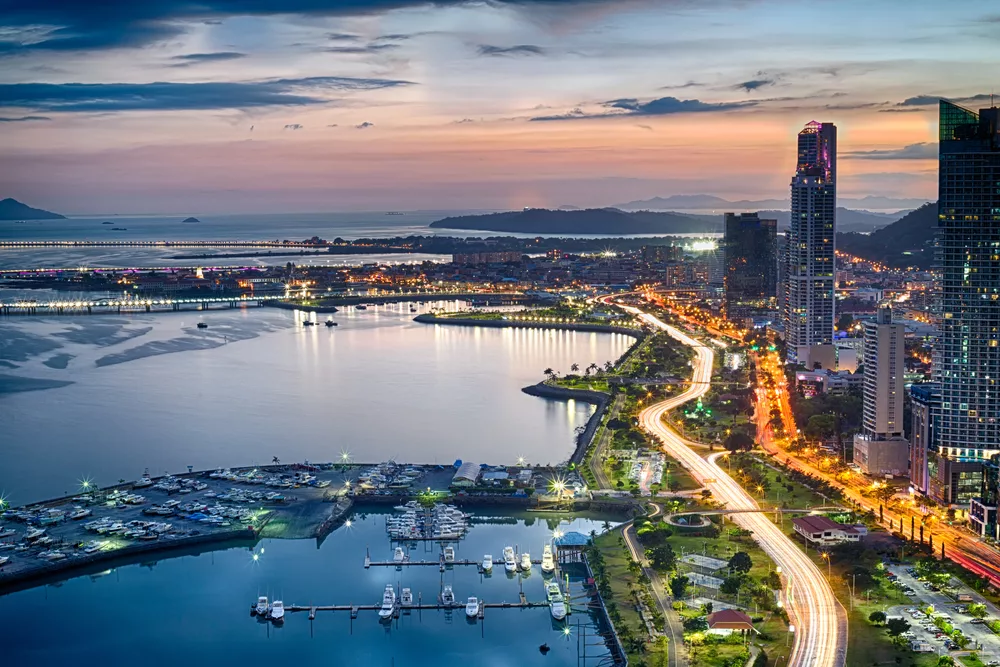
Essentials: Applicants must pay a $250 application fee to the National Immigration Service (Servicio National de Migración) as well as a $50 visa card issuance fee. Additionally, they must have a valid contract with a foreign company or proof they are an independent remote worker and have a minimum annual income of $36,000.
More information: migracion.gob.pa
26. Portugal
Portugal was named the best country for remote workers thanks to its visa and digital nomad schemes as well as its great weather, safety and high English proficiency.
Portugal launched the world's first digital nomad village, Digital Nomads Madeira. The new and flexible initiative seeks to attract digital nomads from around the world to make use of free co-working spaces and internet as well as subsidised accommodation on the island of Madeira – nicknamed the Pearl of the Atlantic.

To work elsewhere in Portugal, there is a temporary resident visa known as a D7 passive income visa, available as well as a residence permit for remote workers and self-employees for 12 months, with the option to renew for up to five years.
Essentials: For Digital Nomads Madeira, applicants must commit to staying for at least a month. For the D7 or residence permit, applicants must provide proof of income or financial means; earn at least $650 per month; have valid health insurance; and submit to a criminal record check.
More information: digitalnomads.startupmadeira.eu / vistos.mne.gov.pt
27. Romania
Romania has some of the world's fastest and cheapest internet which, coupled with its relatively low cost of living, led to it being ranked the third-best country for remote workers. It has now launched a 12-month digital nomad visa for non-EU citizens aiming to attract 2,000 digital nomads annually.

Essentials: Applicants must apply at an embassy or consulate in their country of residency, provide proof of remote work via an employment contract, and have valid health insurance and a clean criminal record. Applicants must also demonstrate they have a monthly minimum income of €3,300.
More information: evisa.mae.ro
28. South Africa
Unconfirmed reports have suggested that South Africa is considering introducing a digital nomad visa aimed at reviving the struggling tourism sector. This visa scheme would allow non-resident remote workers to stay in the country for longer than 90 days and up to 12 months in total. Further details are expected to be announced soon.

Essentials: TBA
More information: TBA
29. Spain
Spain already has its non-lucrative residency visa which allows foreigners to reside in the country for a year. However, this is mainly to tempt retirees and non-EU citizens with enough funds to sustain their life in Spain.
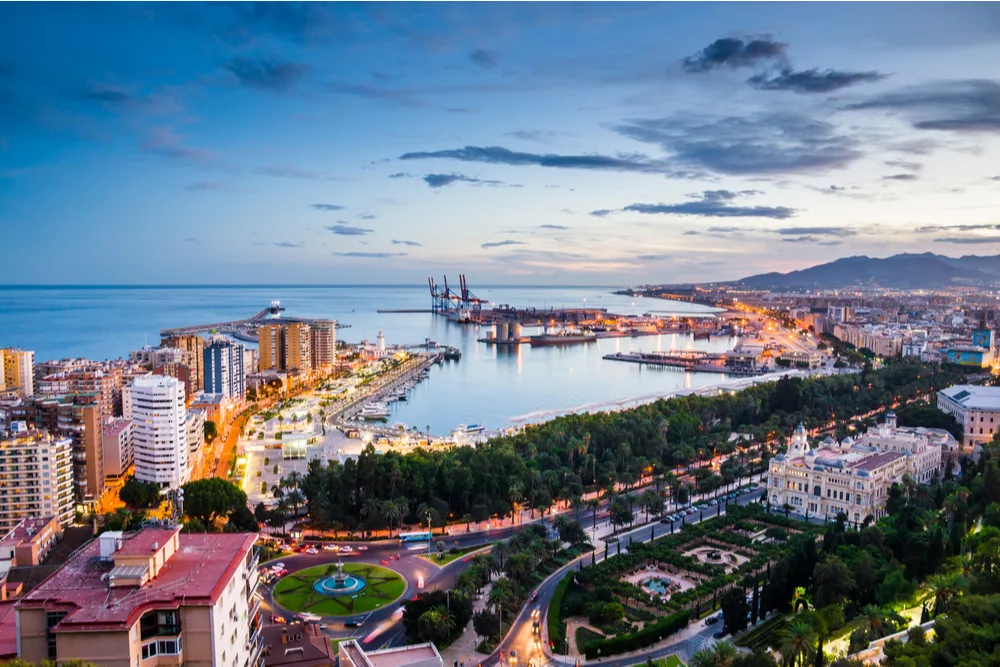
Earlier this year, the Spanish Parliament passed the Startup Act which should make it easier for startups to attract entrepreneurs, investment and, significantly, remote workers. The new law should help non-residents to work remotely for foreign companies in Spain without requiring a full work visa.
Further details are expected to be announced soon.
Essentials: TBA
More information: TBA
Enjoyed this post? pin it for later…






